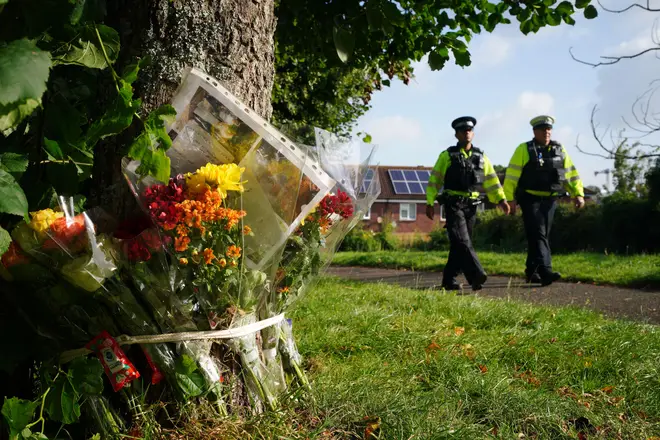
Paul Brand 10am - 12pm
18 August 2021, 12:42 | Updated: 18 August 2021, 12:58

The police force which gave Jake Davison his licence and gun back just weeks before he killed five people in one of the worst mass shootings in the UK is being investigated by the National Police Chiefs' Council.
The firearms review by the NPCC into Devon and Cornwall Police is the third investigation into the events of last week.
On Thursday, August 12, Jake Davison shot dead his own mother and four others - including a three-year-old girl - in the area of Keyham, Plymouth.
The 22-year-old trainee crane operator then turned the gun on himself.
Read more: Plymouth gunman’s mother and girl, 3, named among victims of mass shooting
Read more: Plymouth mass shooting could be reclassified as terror attack, police say
The inquiry by the NPCC is separate to an investigation by the Independent Office for Police Conduct (IOPC), which is already under way. This investigation is looking at the decision by police to return Davison's shotgun certificate and weapon to him just a month prior to the mass shooting.
They had been seized in December of last year following an allegation of assault in the September.

Plymouth shooting leaves six dead, including child under age of 10
The government has also announced firearms applicants will be subject to social media checks.
All police forces in England and Wales are being asked to review their current firearm application processes, as well as assess whether they need to revisit any existing licences.
Read more: Plymouth shooting: Police forces asked to review firearms application processes
Fresh questions were raised about the firearms licensing process on Monday, after it was claimed the unit which gave Davison a shotgun certificate is manned by civilians.
A report by The Times said they understood police officers are largely not involved in vetting and interviewing applicants to assess whether they pose a threat. The team, which covers Dorset as well as Devon and Cornwall, reportedly includes retired officers.
Policing sources told The Times that a lack of resources meant operational officers with extensive firearms knowledge were deployed to other tasks such as investigating crime.
Social media usage by Davison suggested an obsession with "incel" culture, meaning "involuntary celibate", as well as an interest in guns and the US.

'Unspeakably awful': Local MP Luke Pollard reacts to Plymouth shooting
Earlier this week, it emerged Davison received mental health support during the coronavirus lockdown and had been in contact with a telephone helpline service in Plymouth run by the Livewell Southwest organisation.
Read more: Jake Davison attack must be classed 'domestic terrorism', expert claims
Reports have suggested Davison's mother had been struggling to get help for her son, having become concerned about his mental health.
The deaths of Maxine Davison, 51, Lee Martyn, 43, daughter Sophie, 3, Stephen Washington, 59, and Kate Shepherd, 66, as well as Davison, are also the subject of an inquiry by Plymouth coroner Ian Arrow.

One minute silence for Plymouth shooting victims
The peer review was announced by Devon and Cornwall police and crime commissioner Alison Hernandez, who said: "The impact of this will be felt by this community for a long time.
"I want to let the people of Keyham know that after the initial attention has died down we will still be there for them."
On Tuesday evening the Bishop of Plymouth, the Right Reverend Nick McKinnel, spoke out as he led a church service paying respects to the five people killed.
His address appeared to defend the actions of Devon and Cornwall Police, which is under scrutiny over its decision to return the shotgun to Davison.
The bishop said anger should instead be directed at those who "disseminate hate and feed on the insecurities, isolation and bitterness of confused and sick people".
He was joined at the service by civic leaders, religious figures, politicians, emergency service workers and the military.